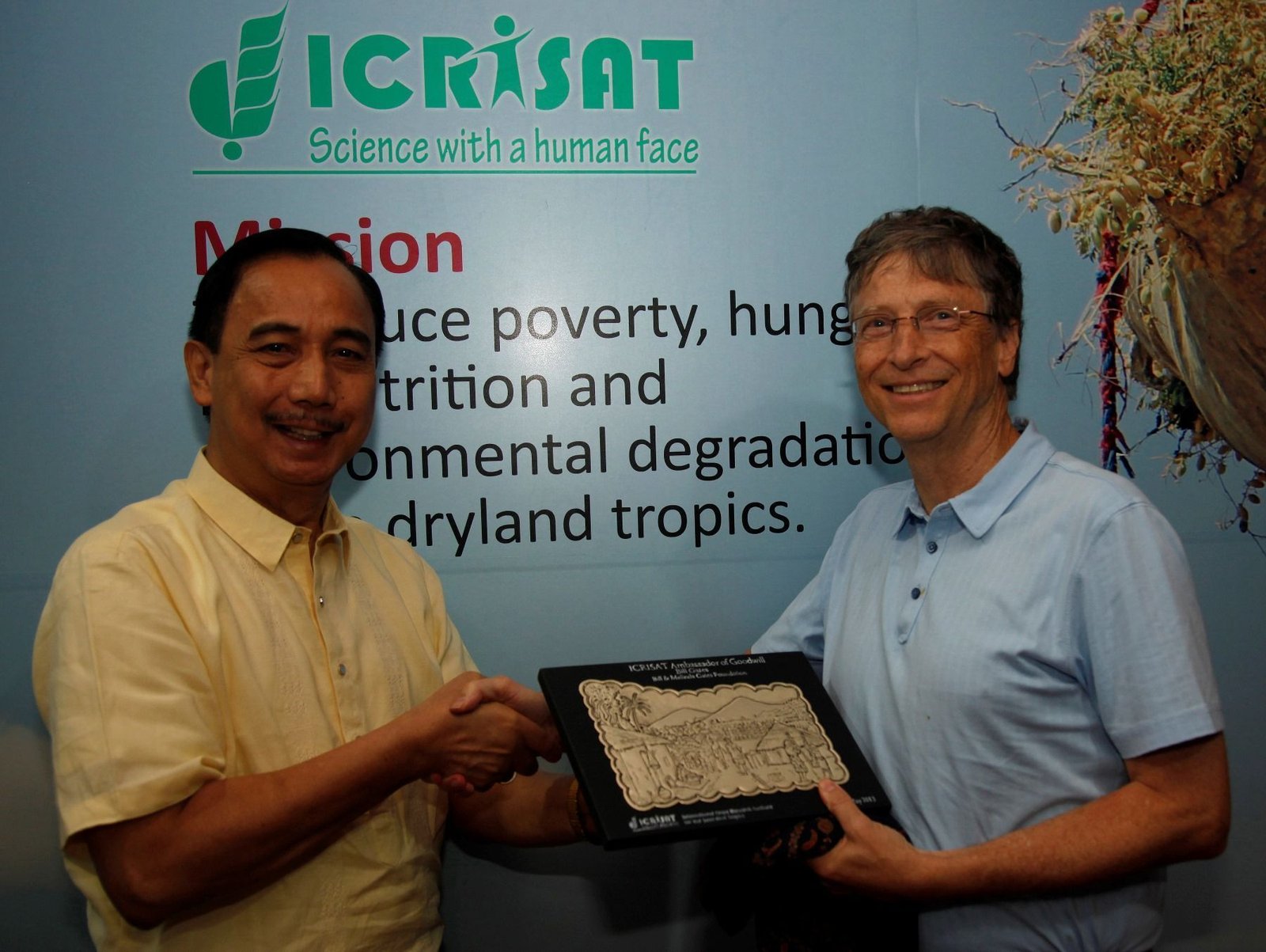Bill Gates finds ICRISAT research 'cool'
June 12, 2013 | Wednesday | News | By BioSpectrum Bureau
Bill Gates finds ICRISAT research 'cool'
Bill Gates receiving the ICRISAT Ambassador of Goodwill plaque from Dr William Dar, ICRISAT director general (Photo credit: Prashant Panjiar
With food insecurity and malnutrition persisting as the greatest challenges facing humanity in the coming decades, Mr Bill Gates, on a recent visit to the organization's Hyderabad headquarters acknowledged the potential of ICRISAT's works on grain legumes and dryland cereals in helping millions of smallholders farmers in the drylands of Asia and sub-Saharan Africa lift themselves out of hunger, malnutrition and poverty.
Mr Bill Gates, Co-chair of the Bill & Melinda Gates Foundation, visited the International Crops Research Institute for the Semi-Arid Tropics (ICRISAT) headquarters in Patancheru, Hyderabad on Thursday, 30 May. This was Mr Gates' first visit to this Institute where he held discussions with the management and several key scientists to gain a better appreciation of the foundation's research for development investments to ICRISAT.
"ICRISAT crops are great , as they target millions of smallholder farmers globally," said Mr Gates. The tour highlighted the uniqueness and importance of the works and initiatives of ICRISAT and its partners, particularly in providing modern crop improvement technologies and best management practices on once 'orphan' or neglected crops like grain legumes and dryland cereals.
"That was cool!" was how Mr Gates reacted on ICRISAT's lysimeter facility for phenotyping, a first of its kind in the world and the largest within the CGIAR system. The facility is now being successfully used for measuring plant responses to water stress related to drought and climate change adaptation
"The drylands are home to 644 million poorest of the poor, and highly nutritious, drought-tolerant crops such as grain legumes and dryland cereals are the best bets for smallholder farmers in these marginal environments to survive and improve their livelihoods," explains Dr William Dar, ICRISAT Director General.
ICRISAT scientists demonstrated the different high-end sciences that the institute uses - genomics, bioinformatics, phenotyping and genetic engineering - all integrated or complementing each other as part of its crop improvement program for smallholder farming.
Considered as international public goods, scientists and national partners worldwide can have free access to ICRISAT's genotyping and phenotyping data, captured and analyzed through its work on bioinformatics, for their respective molecular breeding processes.
Mr Gates also engaged in a roundtable discussion with ICRISAT scientists on the impacts and challenges of applying the science on the ground. Two projects funded by the foundation were highlighted as the case: the HOPE project (Harnessing Opportunities for Productivity Enhancement of Sorghum and Millets) in sub-Saharan Africa and South Asia which seeks to increase by 30% the productivity of sorghum and millets in 200,000 farmers' fields; and the Tropical Legumes I & II project which aims to enhance productivity of six legume crops (groundnut, cowpea, common bean, chickpea, pigeonpea and soybean) by at least 20% through improved cultivars and management practices and the development of markets and value chains.
The poor in the target areas of these two projects are the most malnourished, food-insecure in the world, unable to earn adequate incomes from agriculture which is their only source of food, nutrition and livelihoods. The impacts and achievements of these foundation-funded projects are now changing the lives of the poor, providing millions of smallholder farmers with tools and opportunities to boost their yields, increase their incomes, and build better lives for themselves and their families.
ICRISAT is a member of the CGIAR Consortium. CGIAR is a global agriculture research partnership for a food secure future. ICRISAT is headquartered in Patancheru near Hyderabad, Andhra Pradesh, India, with two regional hubs and five country offices in sub-Saharan Africa. It is a member of the CGIAR Consortium.









